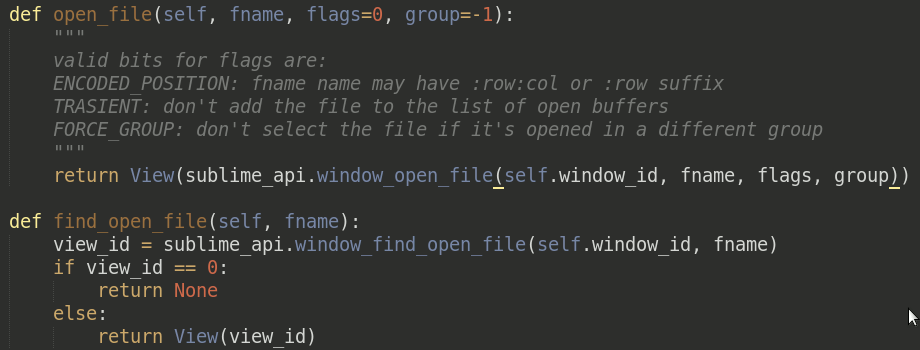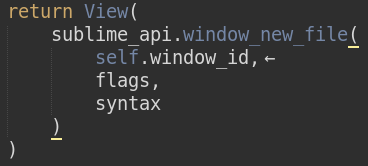AutoSplit
Autosplit plugin for Sublime
Details
Installs
- Total 551
- Win 319
- Mac 134
- Linux 98
| Feb 28 | Feb 27 | Feb 26 | Feb 25 | Feb 24 | Feb 23 | Feb 22 | Feb 21 | Feb 20 | Feb 19 | Feb 18 | Feb 17 | Feb 16 | Feb 15 | Feb 14 | Feb 13 | Feb 12 | Feb 11 | Feb 10 | Feb 9 | Feb 8 | Feb 7 | Feb 6 | Feb 5 | Feb 4 | Feb 3 | Feb 2 | Feb 1 | Jan 31 | Jan 30 | Jan 29 | Jan 28 | Jan 27 | Jan 26 | Jan 25 | Jan 24 | Jan 23 | Jan 22 | Jan 21 | Jan 20 | Jan 19 | Jan 18 | Jan 17 | Jan 16 | Jan 15 | Jan 14 | |
|---|---|---|---|---|---|---|---|---|---|---|---|---|---|---|---|---|---|---|---|---|---|---|---|---|---|---|---|---|---|---|---|---|---|---|---|---|---|---|---|---|---|---|---|---|---|---|
| Windows | 0 | 0 | 0 | 0 | 0 | 0 | 0 | 0 | 0 | 0 | 0 | 1 | 0 | 0 | 0 | 0 | 0 | 0 | 0 | 0 | 0 | 0 | 0 | 0 | 0 | 0 | 0 | 0 | 0 | 0 | 0 | 0 | 0 | 0 | 0 | 0 | 0 | 1 | 1 | 0 | 0 | 0 | 0 | 0 | 0 | 1 |
| Mac | 0 | 0 | 0 | 0 | 0 | 0 | 0 | 0 | 0 | 0 | 0 | 0 | 0 | 0 | 0 | 0 | 0 | 0 | 0 | 0 | 0 | 0 | 0 | 1 | 0 | 0 | 0 | 0 | 0 | 0 | 0 | 0 | 0 | 0 | 0 | 0 | 0 | 0 | 0 | 0 | 0 | 0 | 0 | 0 | 0 | 0 |
| Linux | 0 | 0 | 0 | 0 | 0 | 0 | 0 | 0 | 0 | 0 | 0 | 0 | 0 | 0 | 0 | 0 | 0 | 0 | 0 | 0 | 0 | 0 | 1 | 0 | 0 | 0 | 1 | 0 | 0 | 0 | 0 | 0 | 0 | 1 | 0 | 0 | 0 | 0 | 0 | 0 | 0 | 0 | 0 | 0 | 1 | 0 |
Readme
- Source
- raw.githubusercontent.com
AutoSplit
AutoSplit is a Sublime Text 3 plugin for automatic splitting arguments across multiple lines and joining them back to one line. Works currently only for Python. Support for other languages is ahead.
AutoSplit assumes that function or method calls can be in 1 of 3 possible forms:
inline: all the arguments fit on the same line as the opening parenthesis
(view_id = sublime_api.window_find_open_file(self.window_id, fname)
next line: all the arguments are on the following line, closing parenthesis
)is on the 3rd lineview_id = sublime_api.window_find_open_file( self.window_id, fname )
multiline: every argument is on a fresh line:
view_id = sublime_api.window_find_open_file( self.window_id, fname )
Split/Join commands
AutoSplit provides for (semi-)automatic switching between these argument list forms. All of the command operate on the innermost arglist(s) the cursor(s) is(are) in.
Split (suggested keybinding:
Alt+])Push args off the first line (the line of the opening
() to the next line. If already at the next line, split them across multiple lines (every arg on its own line).Join (suggested keybinding:
Alt+[)Try to join all of the arguments to the next line. If all the arguments are already on the next line, then try to lift them up to the first line.

Split if too long
If you've got the ruler configured, AutoSplit will automatically split long argument lists (the ones that surpass the ruler).

Join indicators
Once you've deleted enough of the contents of the arglist so that it's possible to join it up again, there appears a (clickable) arrow indicator. The arrow is implemented as a Sublime phantom so it's not a part of your text. The arrow just says “it's possible to join the current arglist up”.


An up arrow says “possible to join to the first line”, a left arrow says “possible to join to the next line”.
You can turn on/off arrow indication with the setting named show_arrows.
Multiline tails
The last nested argument list can actually span multiple lines, whereas an initial part of it still resides at the same line as the parent's opening parenthesis:
def new_file(self, flags=0, syntax=""):
""" flags must be either 0 or TRANSIENT """
return View(sublime_api.window_new_file(self.window_id, flags, get_syntax(
nested_call_1(arg1),
nested_call_2(arg2),
nested_call_3(arg3)
)))
We refer to such argument lists as “multiline tails” of their parents. In this example, get_syntax is a multiline tail of window_new_file call. AutoSplit has special support for multiline tails:
splitting an arglist with a multiline tail correctly adjusts indentation inside the tail
def new_file(self, flags=0, syntax=""): """ flags must be either 0 or TRANSIENT """ return View( sublime_api.window_new_file( self.window_id, flags, get_syntax( nested_call_1(arg1), nested_call_2(arg2), nested_call_3(arg3) ) ) )
Accordingly, joining an arglist with a multiline tail dedents the tail back.
if it's only possible to join an arglist with a multiline tail, this is indicated with dashed up and left arrows:

In this example, it's not possible to fully join the arglist up to one line. But it's possible to join it partially, that is, leaving the multiline tail unjoined. Thich is indicated by the dashed arrows.
Keybindings
The 2 commands autosplit_split and autosplit_join is best to use with keybindings, such as Alt+[ or Alt+] or any other you like. For suggested key bindings, please choose the Preferences -> AutoSplit -> Example Key Bindings menu.
